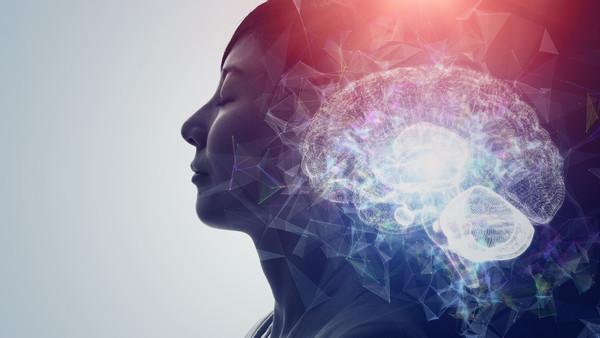Mindfulness and the Brain: What Does Research and Neuroscience Say?
Curated from: positivepsychology.com
Ideas, facts & insights covering these topics:
9 ideas
·11K reads
72
1
Explore the World's Best Ideas
Join today and uncover 100+ curated journeys from 50+ topics. Unlock access to our mobile app with extensive features.
Neuroscience and mindfulness
The term "mindfulness" is about focusing on the moment. It is about embracing every moment of the day.
While being in the moment can be transformative, scientists still don't fully understand what happens in the brain when we practice mindfulness. What is known is just the tip of the iceberg.
248
3.31K reads
The field of mindfulness research
Many studies have been done on mindfulness. The most widely recognised are:
- Mindfulness-Based Stress Reduction (MBSR). This program is designed to assist people with pain and a range of conditions that may be difficult to treat in a hospital setting.
- Mindfulness-Based Cognitive Therapy (MBCT). The goal is to help people change unproductive thoughts. MBCT uses psychological techniques that help people understand the relationship between various emotions and mood disorders.
- Cognitive behavioural therapy (CBT) is used to treat various mental problems like anxiety, phobias, and even pain.
200
1.06K reads
Mindfulness benefits
Research indicates that mindfulness can help with the following:
- It impacts human functioning.
- It improves the quality of attention.
- It affects interpersonal behaviour.
- It provides greater empathy and compassion.
- Optimization of mental health.
- Positive impact on the brain and immune system.
- It assists with chronic pain.
- It helps overcome insomnia.
- It helps with caregiver burnout.
204
971 reads
The neuroscience of mindfulness
Neuroplasticity means the brain is malleable and able to restructure itself by forming new neural connections.
- Meditation might slow down or prevent forgetfulness related to age. Research found people who meditated in their 40s and 50's had the same amount of grey matter as those in their 20's and 30's.
- Following 8 weeks of mindfulness exercises, brain volume increased in 4 regions of the brain, including the hippocampus (responsible for the regulation of emotions, learning and memory) and the temporoparietal junction (responsible for empathy and compassion.)
218
950 reads
How mindfulness affects and changes the brain
One meta-analysis found 8 unique regions of the brain consistently changed in people experienced in meditation. These are:
- Rostrolateral prefrontal cortex
- Sensory cortices
- Insular cortex
- Hippocampus
- Anterior cingulate cortex
- Mid-cingulate cortex
- Superior longitudinal fasciculus
- Corpus callosum
Consistent changes were noticed as follows:
- Changes in brain density
- Changes in thickness of brain tissue
- Increase in neurons, fibres, and glia
- Changes in cortical surface area
- Changes in white matter fibre density
198
656 reads
Mindfulness or medication
Some studies compared mindfulness therapies to medication.
- One study found no difference between participants of mindfulness-based cognitive therapy (MBCT) and anti-depressant medication. This suggests that MBCT is a reasonable alternative to standard medicine.
- Research also showed that combining medication and psychotherapy often results in better outcomes than focusing on one alone.
188
763 reads
Research on Autism and Mindfulness
- Research done on mindfulness parenting can be helpful with persons with autism, where parents apply the skills of mindfulness to the child-parent interaction, including attentive listening, non-judgmental acceptance of the self and the child, and self-regulation.
- Studies found mindfulness interventions can minimize the struggles related to behaviour and mood regulation.
- Using mindfulness, people with autism can learn to find a balance between sensing and feeling that allows for a calmer response.
187
753 reads
Mindfulness and ADHD
While medication is often used to treat ADHD, its effects are usually short-term. The medicine also has side effects.
In a randomised controlled trial, researchers found that mindfulness instruction is a good choice for young people with ADHD. The study is focused on measures of attention, hyperactivity and impulsivity.
229
2.02K reads
7 Mindfulness studies you need to know about
- Lutz, Dunne & Davidson (2008) found mindfulness impacts the amygdala.
- Goldin & Gross (2010) found that the hippocampus was more active after mindfulness training.
- Carson, J. et al. (2004) found a correlation between mindfulness and healthier relationships.
- Chiesa & Serretti (2010) found the prefrontal cortex became more active following mindfulness training.
- A 2005 study found thicker cortical regions related to attention and sensory processing in meditation practitioners.
- Lazar et al. (2005) found meditation prevents cortical thinning.
- Beddoe & Murphy (2004). Mindfulness encourages empathy.
204
600 reads
IDEAS CURATED BY
Camille A.'s ideas are part of this journey:
Learn more about health with this collection
Effective note-taking techniques
Test-taking strategies
How to create a study schedule
Related collections
Similar ideas
Read & Learn
20x Faster
without
deepstash
with
deepstash
with
deepstash
Personalized microlearning
—
100+ Learning Journeys
—
Access to 200,000+ ideas
—
Access to the mobile app
—
Unlimited idea saving
—
—
Unlimited history
—
—
Unlimited listening to ideas
—
—
Downloading & offline access
—
—
Supercharge your mind with one idea per day
Enter your email and spend 1 minute every day to learn something new.
I agree to receive email updates

